Food
The Nutritional Power of Avocados - Part I
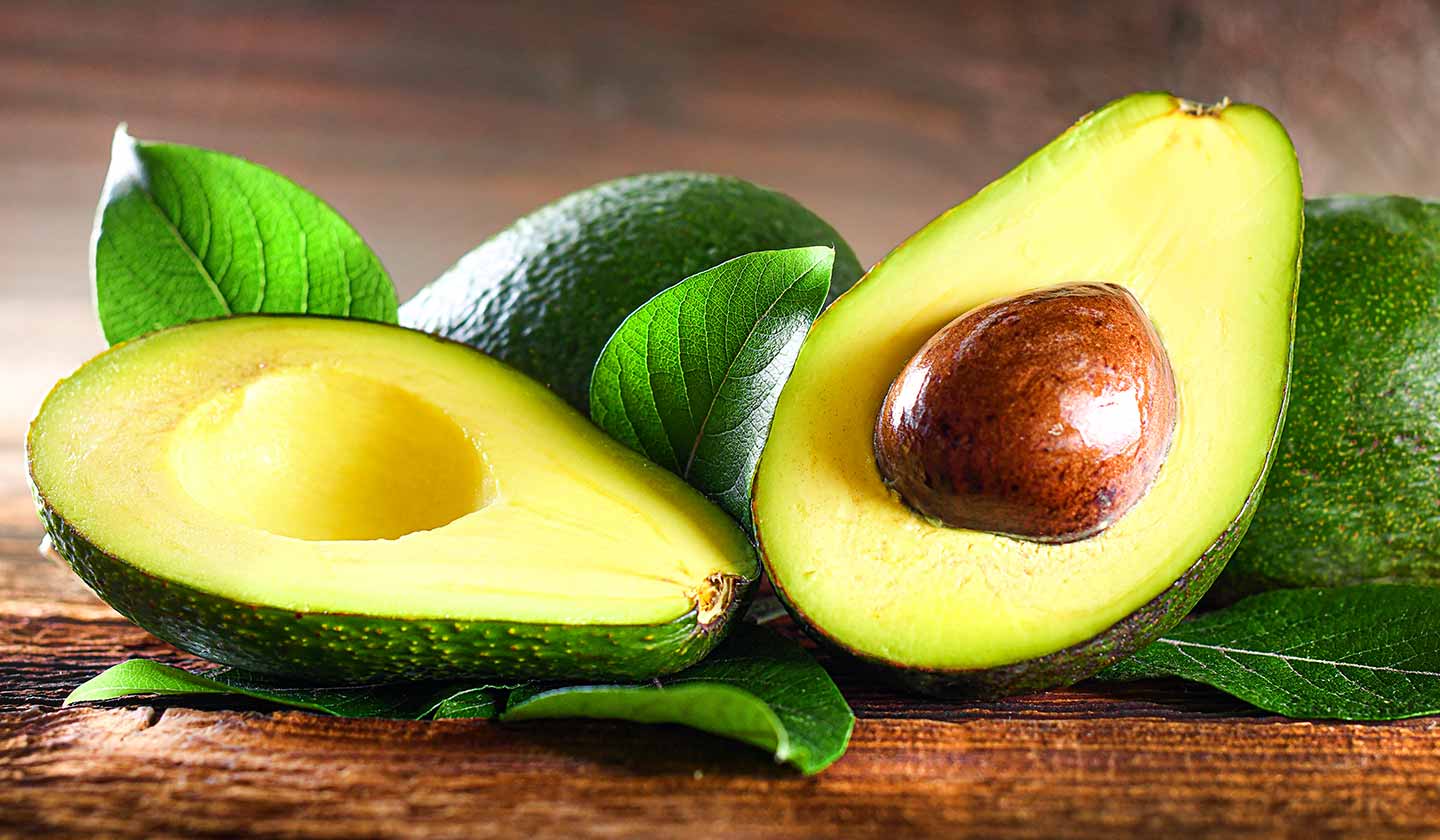
The avocado or avocado pear is the fruit of the avocado tree, originally from South America. Although it needs a subtropical climate to develop, its consumption in Portugal is now possible all year round due to the existence of plantations in the south of the country.
Rich in sugars and vitamins, the avocado is an extremely popular food, especially in cooking. This fruit has generated a lot of curiosity for consumers due to all its nutritional properties. Taking into account its nutritional composition, the avocado can integrate various diets, from hypocaloric diets for weight loss to hypercaloric diets for weight gain or adapted to the practice of sports.
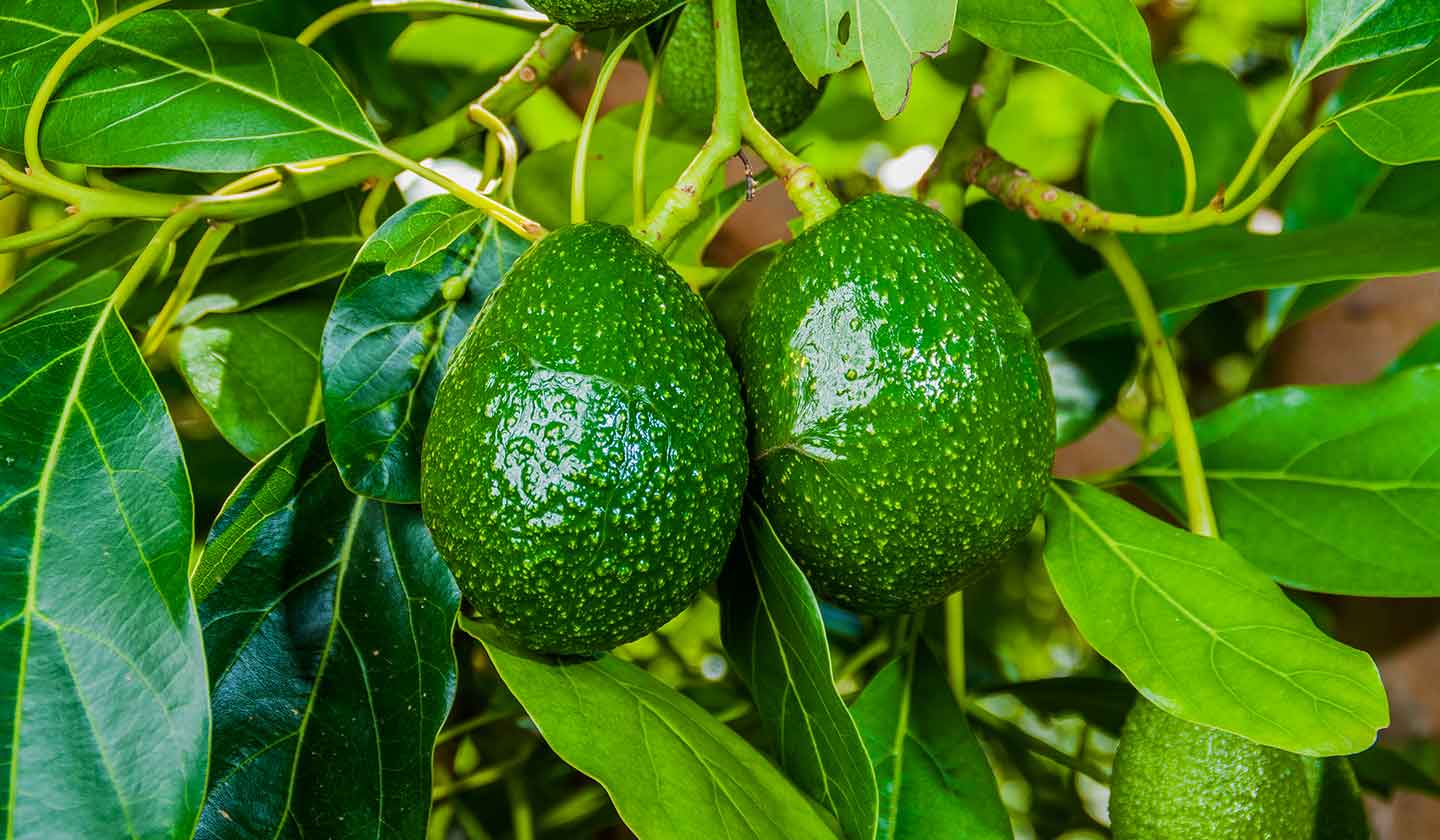
Main properties and health benefits
Avocados are composed mostly of monounsaturated fats, which are healthy fats for the body. Its health benefits include its effects on reducing cholesterol and triglyceride levels, proving to be a good cardiovascular protector.
The avocado is a fruit nutritionally rich in vitamins and minerals, of which vitamins A, C, B6 and E stand out. These vitamins intervene at the level of immune function, protecting the body against external agents, act at the level of bone development, participate in the synthesis of collagen at the level of skin and tissues, and have antioxidant properties. In terms of minerals present in avocados, we also highlight potassium and magnesium, which play important roles in the body, such as metabolism and blood pressure control.
It helps hydrate and maintain the health of the skin and hair due to the presence of B vitamins and vitamin E. Avocado can be incorporated into diets to lose weight and by people who have diabetes, since it is rich in fiber that helps increase the feeling of satiety and regulate the absorption of sugars at the intestinal level. However, avocados should be consumed in small portions due to the fact that they are a very high-calorie fruit.

11 health benefits of avocados
1. Prevents premature aging
The benefits of avocado for the skin are mainly to fight stretch marks, wrinkles, and cellulite because it is rich in vitamin C, which helps in the metabolization of collagen, the substance that gives firmness to the skin.
In addition, this fruit also has antioxidants that help protect and prevent aging of skin cells, giving greater elasticity and leaving a more beautiful and healthy appearance.
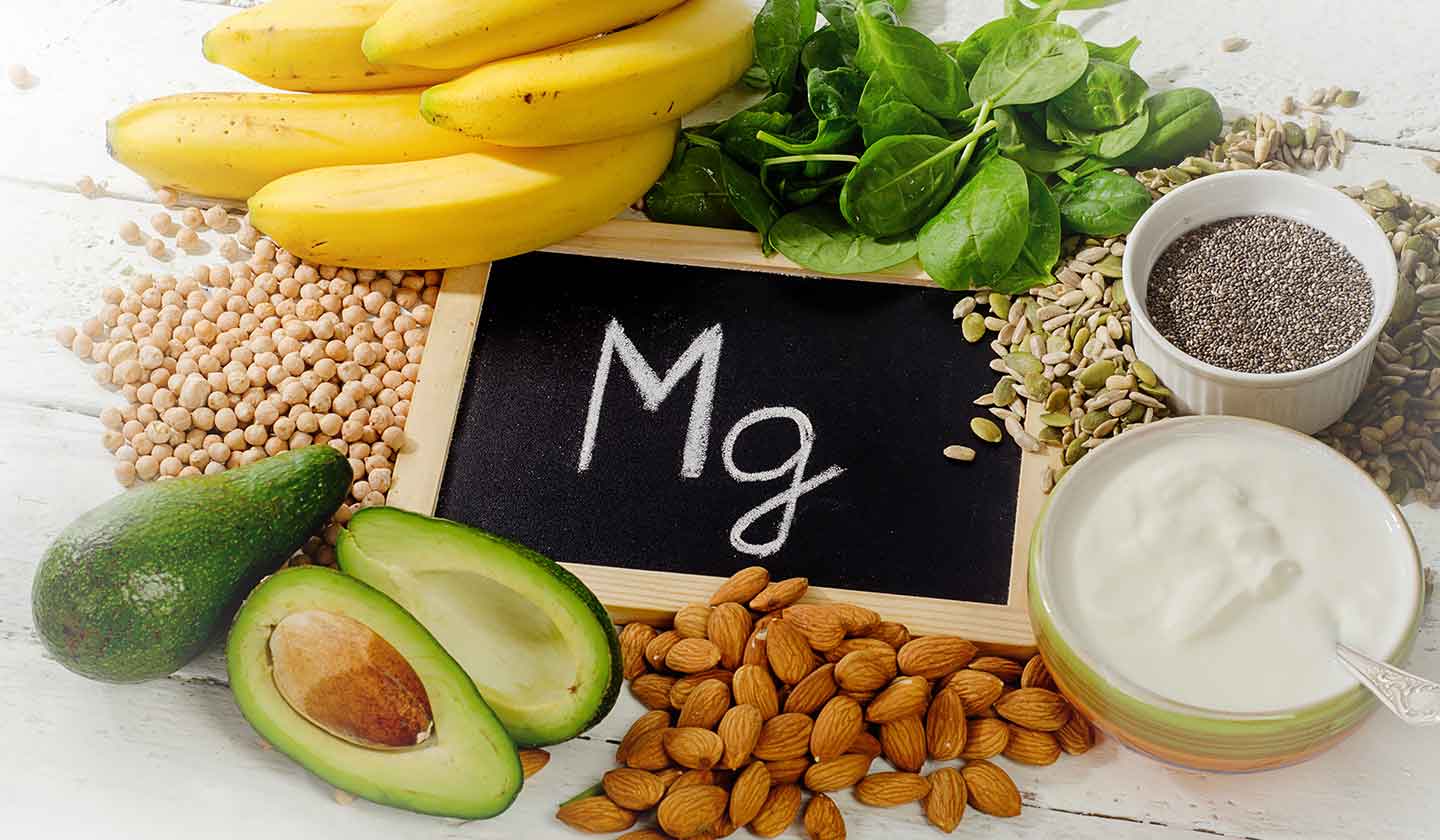
2. Encourages the increase of muscle mass
When consumed before physical activity, avocado helps in the formation of muscle mass, because it is rich in good fats, which provides energy to the body to perform the workout, besides providing proteins that favor muscle recovery.
It is also rich in magnesium, an important mineral for muscle contraction, and potassium, which helps fight fatigue and prevent cramps during training.

3. Provides folic acid
Avocado is rich in folic acid, its regular consumption helps stimulate the formation of blood cells, preventing and improving anemia.
In addition, it is an excellent option to be included in the diet of women who intend to become pregnant or who are in the first trimester of pregnancy, because folic acid is a vitamin that participates in the formation of the baby's nervous system, preventing the appearance of some congenital diseases, such as anencephaly and spina bifida.
4. Increases hair moisture and shine
When used in masks for hair, avocado increases the hydration of the strands and promotes their growth. This happens due to the fact that it is a fruit rich in fats, B vitamins and E complex, making the hair shinier and healthier.
5. Helps to lose weight and prevents constipation
Avocados are rich in fiber, mainly insoluble, providing 3 grams of fiber per 100 grams of fruit. Fiber allows you to control your appetite and avoid overeating, since it increases the feeling of satiety and regulates blood sugar.
In addition, it also has B vitamins, which are necessary for the proper functioning of the metabolism. However, because it is rich in fats, avocados have many calories, so it is recommended that they be included in the diet in small portions.
6. Combats constipation
The avocado, being rich in fiber, also helps to combat constipation, since it increases the volume of the stool and promotes intestinal transit. In addition, it is also important to increase the consumption of water so that the stools become more hydrated and soft, favoring their exit.

7. Improves brain function
It improves memory capacity, because the omega-3 stimulates blood circulation and increases the ability to concentrate.
In addition, because it is rich in folic acid and magnesium, it also helps to prevent depression, dementia, and Alzheimer's, as they participate in the synthesis of neurotransmitters that help improve not only memory, but also concentration and motivation.
8. Prevents heart disease
Avocado, being a fruit rich in phytosterols from polyunsaturated and monounsaturated fats, helps to lower the blood markers that increase the risk of heart disease by reducing total cholesterol, triglycerides, and bad or LDL cholesterol.
In addition, it promotes the synthesis of good, or HDL, cholesterol, preventing the accumulation of fatty plaques in the arteries and promoting heart health.
9. Controls blood pressure
Avocados contain good amounts of potassium and magnesium, important minerals that help reduce blood pressure, since potassium helps eliminate sodium through urine and magnesium helps increase the production of nitric oxide, a compound that helps relax blood vessels.
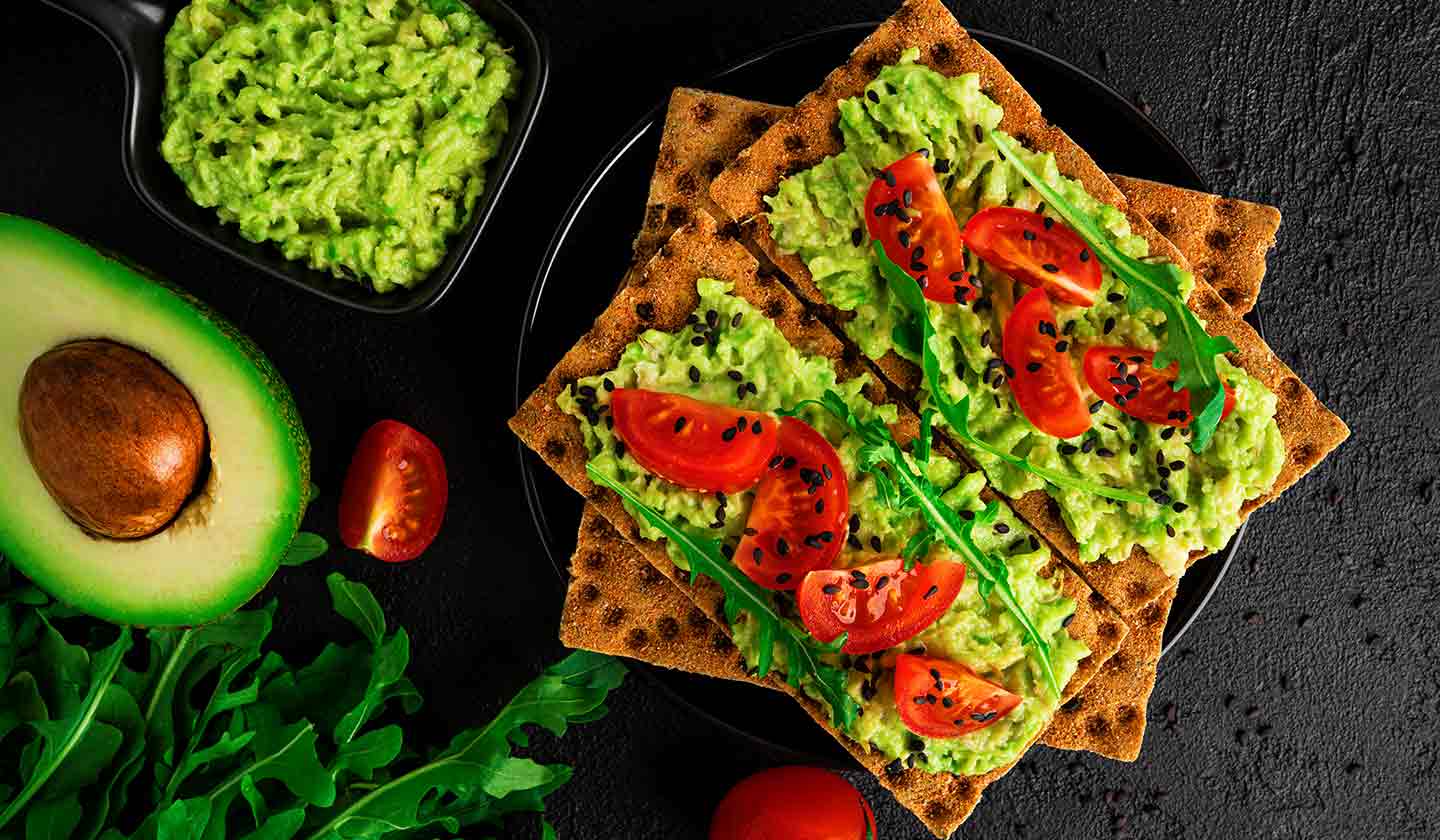
10. Preventing Cancer
Due to its content of antioxidants such as omega-3 and vitamins C, A, and E, regular consumption of avocados helps neutralize the formation of free radicals in the body and decrease the process of oxidative stress.
In addition, oleic acid, a type of monounsaturated fat found in avocados, has anti-inflammatory and anti-cancer effects, as it can induce tumor cell death, thus decreasing the risk of cancer.
11. Helping to regulate blood sugar
Avocados are rich in good fats, low in carbohydrates and high in fiber, making them an excellent fruit to be eaten by people with pre-diabetes as well as by people who have diabetes, as they help regulate blood glucose and prevent it from rising in the blood.
Nutrition Facts Table
The table shows the nutritional values per 100 g of avocado:
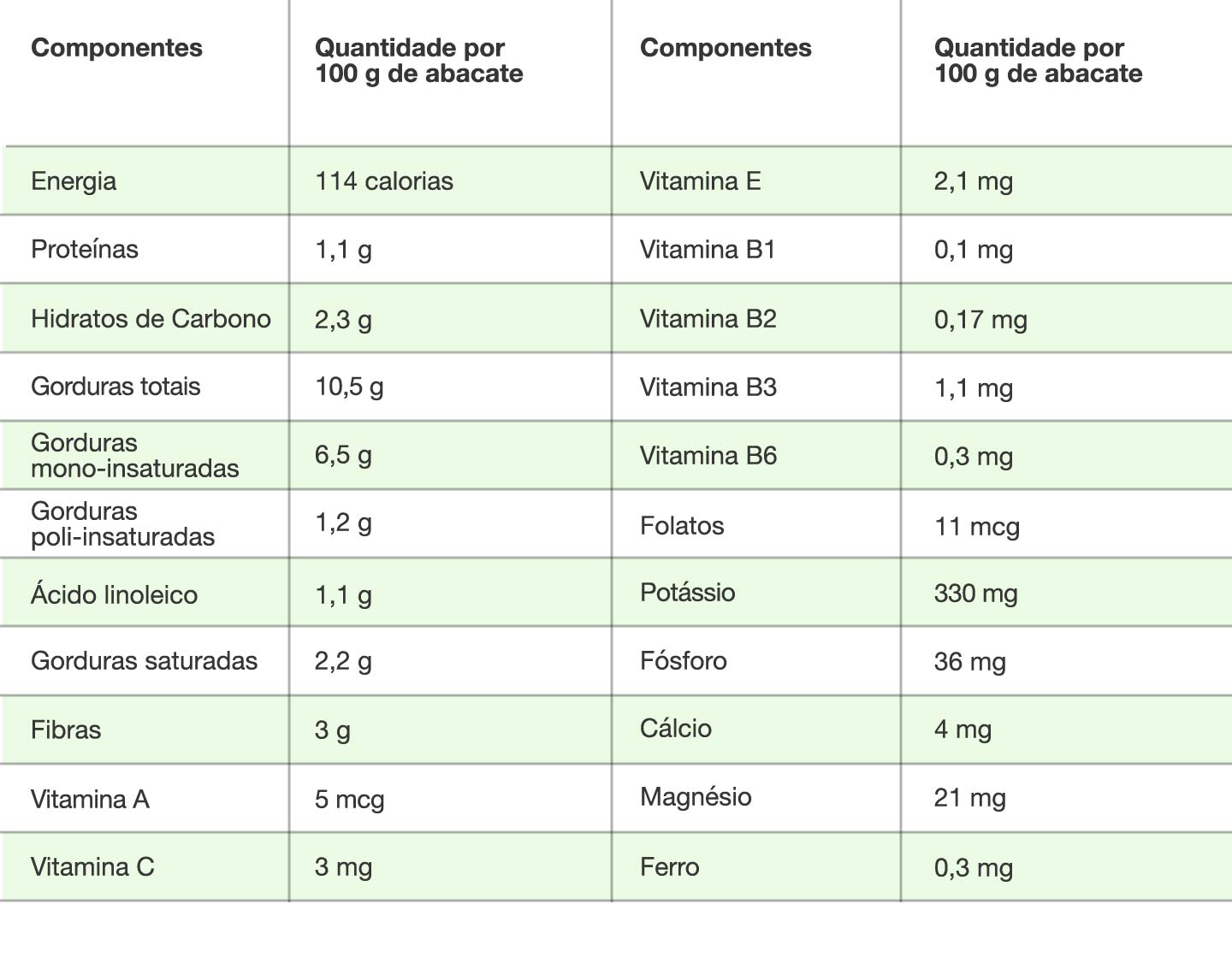
To ensure the benefits of avocados, it is important to include them in a healthy and balanced diet.
How to consume
Although there is no specific indication about the amount of avocado per day, the minimum daily fruit recommendation is 2 to 3 servings, which is equivalent to between 160 and 240 g per day.
Avocados can be eaten plain or added to salads, vitamins, and creams. The avocado seed, on the other hand, can be roasted and consumed in the form of flour, and can be added to sauces, juices, or used in preparations such as cookies and cakes, for example.
In addition, avocados can also be used in the form of oil, which is a great option for preparing food.
Recipes with Avocado
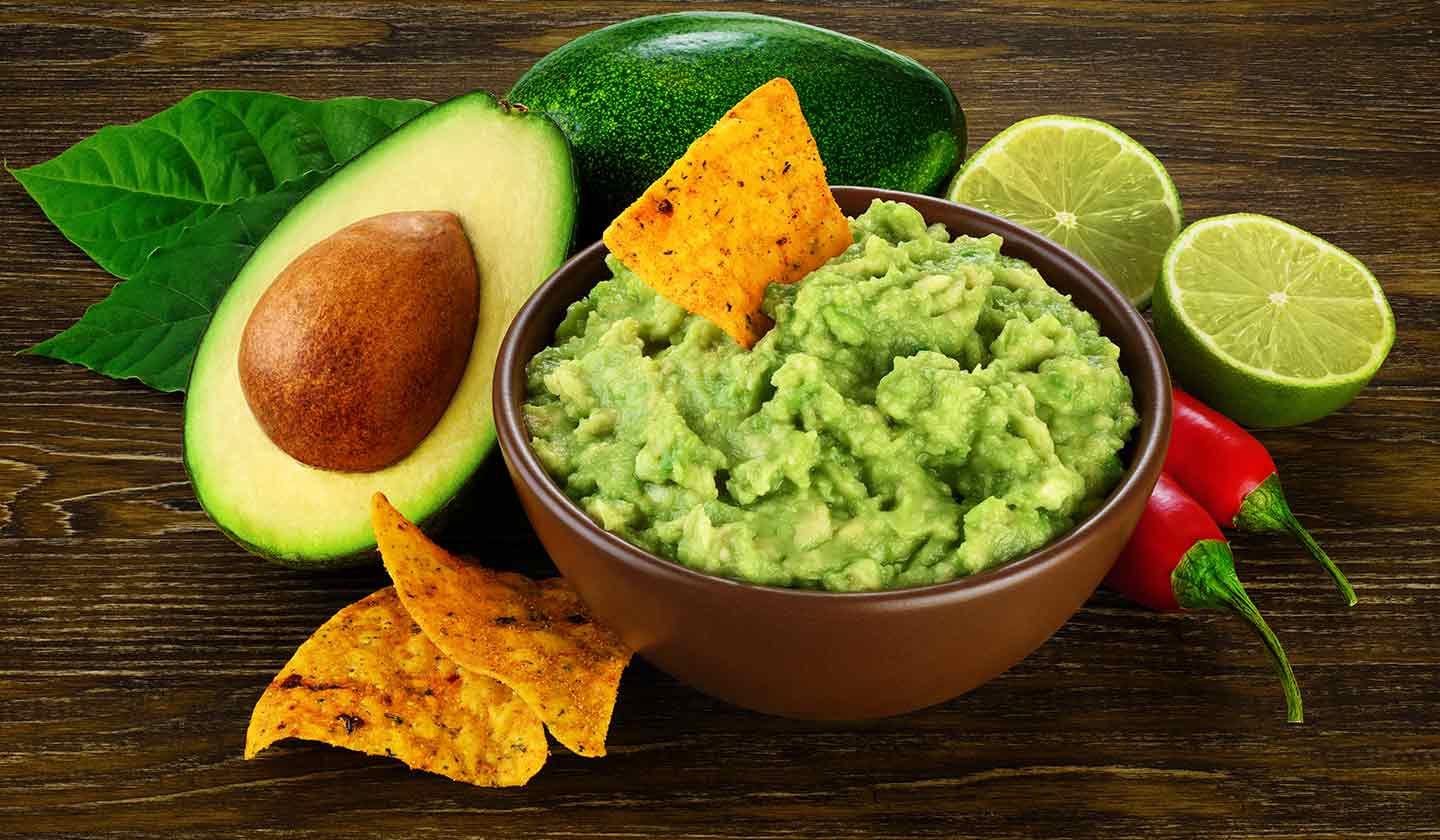
Guacamole
Ingredients:
- 1 medium ripe avocado
- 2 chopped peeled and seedless tomatoes;
- 1 medium onion, chopped;
- 1 clove garlic, minced or crushed;
- 2 tablespoons of olive oil;
- Pepper, lemon, salt, and parsley to taste.
Preparation:
- Remove and mash the pulp of the avocado, with a few drops of lemon, and store in the refrigerator.
- Saute the tomato, onion and garlic in olive oil and pepper, adding 1 tablespoon of water.
- Let it cook for two minutes.
- After cooling, add the avocado and mix until it forms a paste, then season with salt, lemon and green smell.
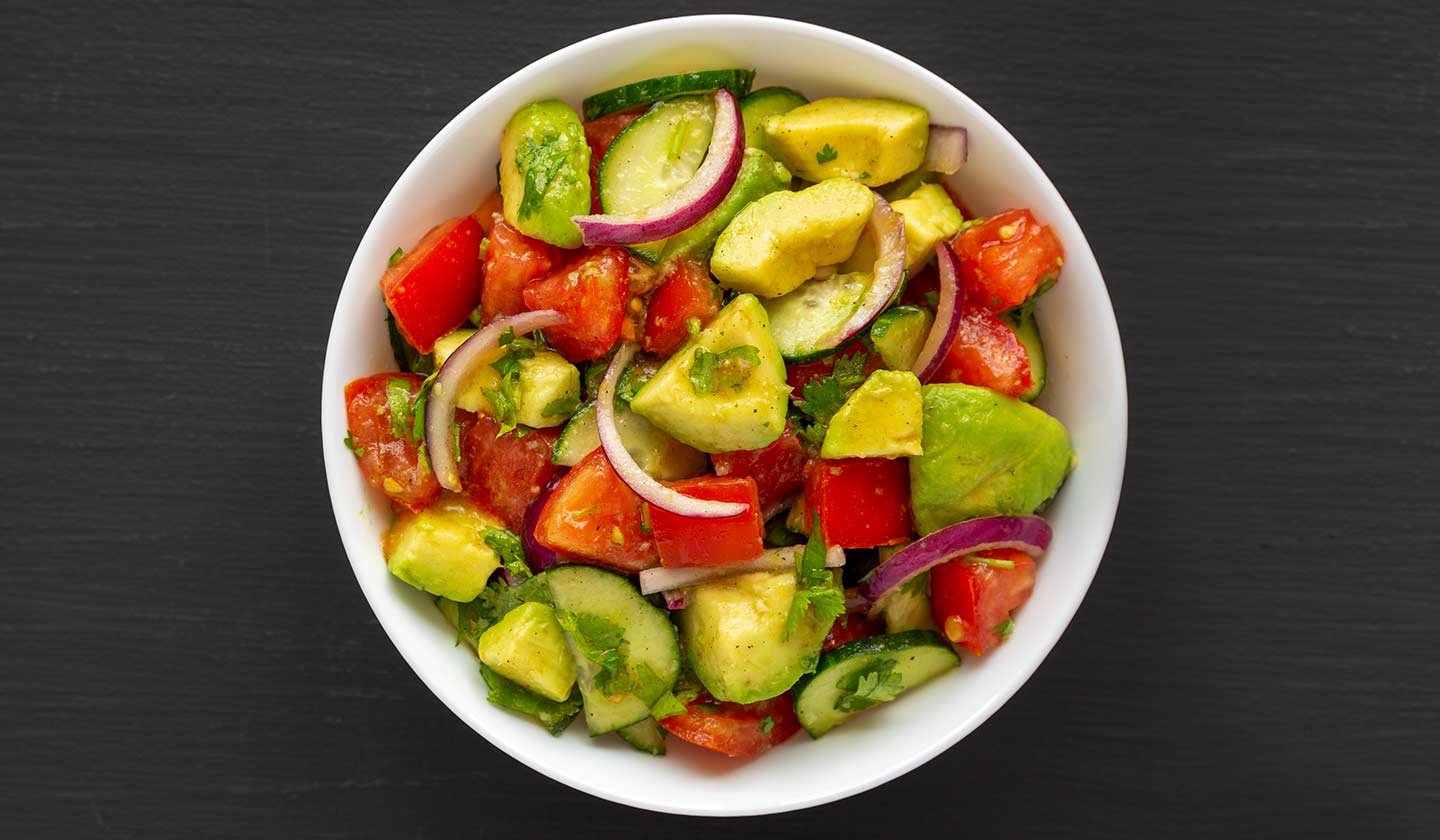
Vegetable salad with avocado
Ingredients:
- 1 diced tomato
- 1/2 onion, diced;
- 1 diced cucumber;
- 1 diced courgette;
- 1 ripe avocado diced;
- Chopped parsley, salt, olive oil and lemon to taste.
Preparation:
- Mix all ingredients together carefully so that the avocado does not fall apart, season with parsley, salt, olive oil and lemon and serve chilled.
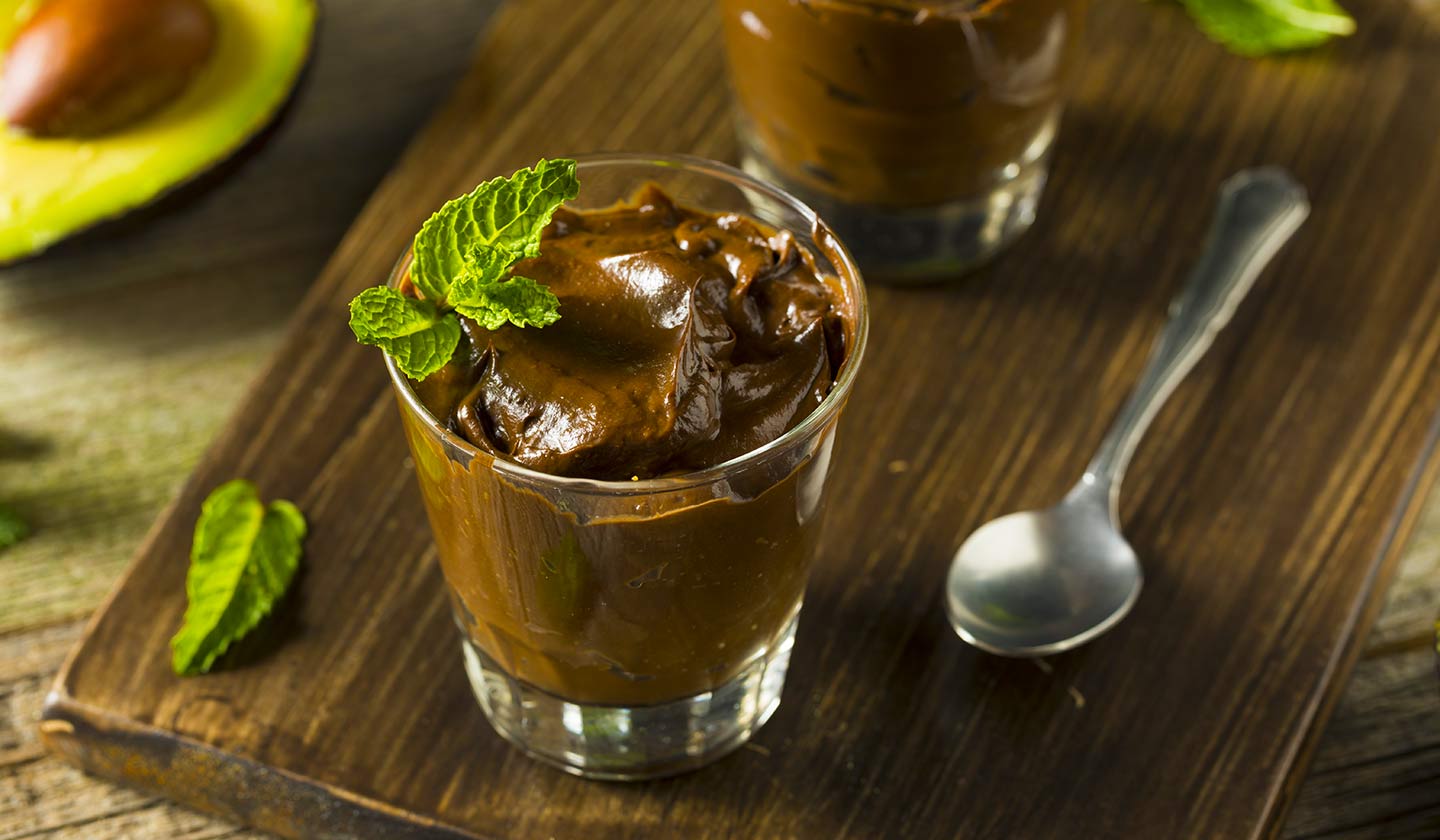
Avocado Brigadeiro with Cocoa
Ingredients:
- 1 ripe avocado;
- 1 tablespoon unsweetened cocoa powder;
- 1 tsp. coconut oil
- 1 tablespoon honey.
Preparation:
- Beat all ingredients in a blender until smooth and leave in the refrigerator to firm up.
- Serve ice cream.
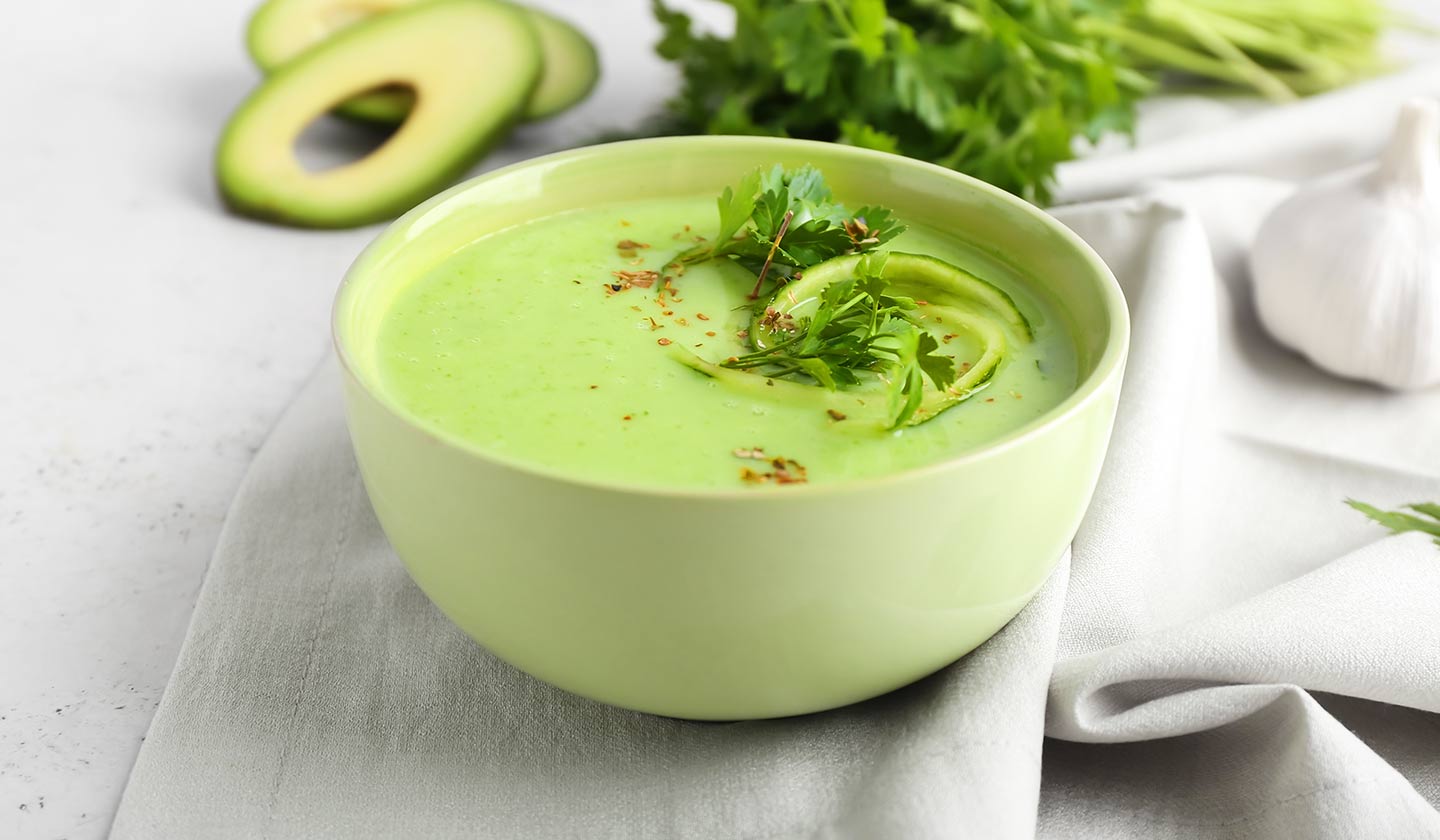
Other recipes with Avocado
Shakes
For rushed mornings or for a quick, nutritious snack, there's nothing like an avocado smoothie with almond milk! These two ingredients have lots of benefits for brain and cardiovascular health, and even provide an extra dose of energy.
You can also mix avocado with apple, cucumber, spinach, lemon, ginger, celery, pear, and apple juice. This recipe, which helps detoxify the body, is also a must for hungover mornings.
Soups
Although not as popular, avocado soups do exist and can give your day a boost of energy and freshness. Avocado soup with grated ginger, mint, and lime juice, avocado soup with plain yogurt and bacon, avocado soup with parmesan, tomato, and shredded chicken... there are recipes for every taste!
Ana Neto
(Pharmaceutical)
Também lhe poderá interessar
Food
The Nutritional Power of Olives
Food






